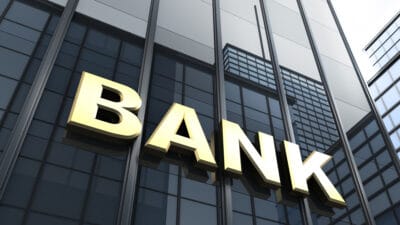As most ASX investors would be aware, the Commonwealth Bank of Australia (ASX: CBA) share price had a blowout year in 2024.
Sure, 2023's return of 13.35% (including dividends) was decent. But the 2024 share price gain of 37.08% blew that out of the water. Particularly when dividends stretch that up to 41.2%.
Yep, CBA shares started 2024 at a price of $111.80, which was pretty close to this ASX 200 bank stock's all-time high at the time. But last year saw CBA rocket past $120 a share, then $130, $140 and $150. In October, CBA even got up as high as $161.70 before finishing the year at a still-impressive $153.25.
Check it out for yourself below:
Now, countless Australian investors would have welcomed these gains. CBA is one of the most widely-held stocks in the average Aussie portfolio. It would also be a major holding in the vast majority of Australian superannuation funds.
Saying that however, most ASX experts are united in their view that CBA shares are now overvalued. At the start of the year, my Fool colleague James reported that "All the major brokers have price targets [on the CBA share price] at least 25% below where its shares trade today".
It's hard to argue with that assessment, considering that CBA shares now trade on (at the time of writing) a price-to-earnings (P/E) ratio of 27.63 (above that of Google owner Alphabet). And with a very unbank-like dividend yield of just 2.96% to boot. It's also worth remembering that CBA reported a decline in net profits over the 2024 financial year.
So what's been driving the CBA share price so enthusiastically then, if not rising earnings and profits?
Well, one ASX expert thinks it has the answer.
ASX expert: Super funds are driving up the CBA share price
Investment bank and broker JPMorgan reckons it has cracked the CBA code. According to reporting in the Australian Financial Review (AFR) this week, JPMorgan reckons that superannuation funds are largely responsible for the ascendency of the CBA's economy over 2024 in particular.
JPMorgan equity strategists Jason Steed and Dylan Adrian agree with brokers that CBA's stagnant fundamentals and outlook don't justify the current price of CBA shares.
However, they argue that as "Australian equity managers dumped the big four banks because they were too expensive to own, super fund investment teams worked against them by stepping in as buyers".
This, the strategists argue, has happened because super funds are routinely judged against index benchmarks like the S&P/ASX 200 Index (ASX: XJO). As super funds don't want to appear to be losing to this benchmark, they are happy to hold large positions in the banks.
In fact, JPMorgan's data suggests that these funds continued to maintain or even top up their holdings as CBA and its banking peers have risen in value.
With trillions of dollars in assets under management, superannuation funds collectively certainly have the firepower to influence the stock prices of even large companies like CBA.
JPMorgan's explanation is arguably far more believable than making a case that CBA's fundamentals justify its current pricing.
It will be interesting to see what 2025 brings for Commonwealth Bank stock.








